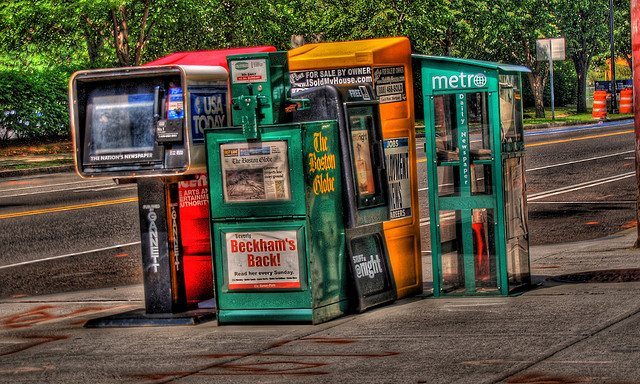 Image courtesy of [Ville Miettinen via Flickr]
Image courtesy of [Ville Miettinen via Flickr]
Society and Culture
Recent Defamation Decisions Show Freedom of Speech is Alive and Well
With the recent attack on Charlie Hebdo staff in Paris, freedom of speech at large was assaulted. To show that freedom of thought has not–and will not–be eliminated, I thought I would illustrate several recent court decisions across the globe that have advocated for freedom of expression.
Joseph Stalin’s Grandson
According to the Russian News Agency, Joseph Stalin’s grandson had his defamation lawsuit complaint dismissed, which claimed that the newspaper Novaya Gazeta defamed his grandfather in a 2009 article. Yevgeny Dzhugashvili filed a lawsuit against the Novaya Gazeta in 2010 for publishing articles about shooting prisoners in 1940 in Katyn, Poland.
In explaining its decision, the European Court of Human Rights claimed that the article “concerned an event of significant historical importance and that both the event and historical figures involved, such as the applicant’s grandfather, inevitably remain open to public scrutiny and criticism.”
South Korean Journalists
Two South Korean journalists were acquitted Friday of charges that they defamed the South Korean president’s brother, Park Ji-man. The journalists, Choo Chin-woo, a reporter for SisaIN, and Kim Ou-joon, a host of a political podcast, stated that Ji-man might have been involved in the murder of Ji-man’s relative, according to The New York Times.
Choo and Kim were originally acquitted in October 2013, but prosecutors appealed the verdict. The prosecutors sought long prison terms, and several free speech organizations protested the second trial, claiming that the prosecutors were causing the journalists to censor themselves.
This win is big for freedom of expression advocates because of South Korea’s perceived lack of tolerance for dissent among critics. In particular, critics point to the burden of proof in defamation cases within South Korea, which is placed on the defendant, rather than on the prosecution.
Super Bowl Prostitution
Earlier this week, Janice Lee, who was the subject of a TMZ article last year entitled, “Super Bowl Prostitution Bust,” sued several media outlets, most notably TMZ and the New York Daily News, for defamation.
Lee’s complaint claims that TMZ’s article contained false statements of fact, such as Lee’s business was a front to funnel profits from pimps, according to Entertainment Law Digest. Lee’s complaint alleges that she sells wigs and has “never touched illegal drugs and has never engaged in prostitution or the operation of a prostitution ring.”
TMZ’s article also stated that Lee was in a “a small army of Asian hookers … who take credit cards.” Moreover, the article included her picture and referred to her as an “arrested prostitute.”
Lee says in her complaint that she has been “humiliated among millions of readers and all of her community as a criminal; as a prostitute; as a gang member and as part of an organized criminal enterprise.” Lee is seeking an injunction that would cause the media outlets in her complaint to clarify and retract any false statements about her.








Comments